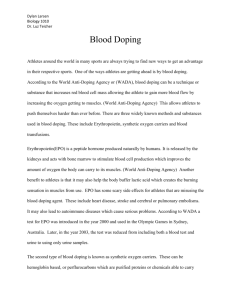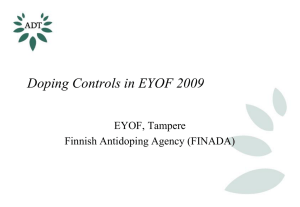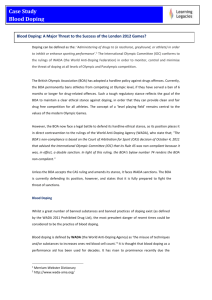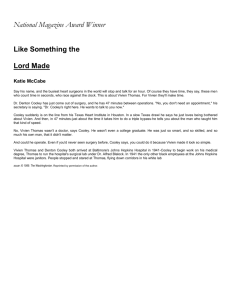Blood Doping - Mayo Clinic News Network
advertisement
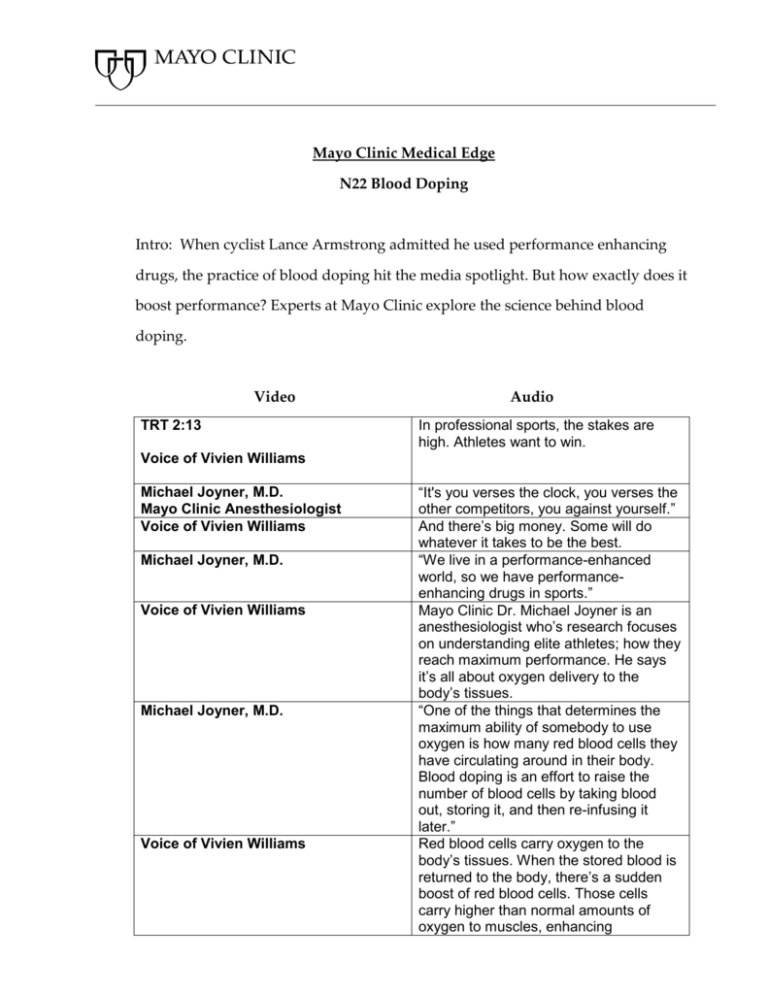
Mayo Clinic Medical Edge N22 Blood Doping Intro: When cyclist Lance Armstrong admitted he used performance enhancing drugs, the practice of blood doping hit the media spotlight. But how exactly does it boost performance? Experts at Mayo Clinic explore the science behind blood doping. Video TRT 2:13 Audio In professional sports, the stakes are high. Athletes want to win. Voice of Vivien Williams Michael Joyner, M.D. Mayo Clinic Anesthesiologist Voice of Vivien Williams Michael Joyner, M.D. Voice of Vivien Williams Michael Joyner, M.D. Voice of Vivien Williams “It's you verses the clock, you verses the other competitors, you against yourself.” And there’s big money. Some will do whatever it takes to be the best. “We live in a performance-enhanced world, so we have performanceenhancing drugs in sports.” Mayo Clinic Dr. Michael Joyner is an anesthesiologist who’s research focuses on understanding elite athletes; how they reach maximum performance. He says it’s all about oxygen delivery to the body’s tissues. “One of the things that determines the maximum ability of somebody to use oxygen is how many red blood cells they have circulating around in their body. Blood doping is an effort to raise the number of blood cells by taking blood out, storing it, and then re-infusing it later.” Red blood cells carry oxygen to the body’s tissues. When the stored blood is returned to the body, there’s a sudden boost of red blood cells. Those cells carry higher than normal amounts of oxygen to muscles, enhancing Michael Joyner, M.D. Voice of Vivien Williams Michael Joyner, M.D. Voice of Vivien Williams To sports the Dr. Joyner Michael Joyner, M.D. performance. “The other thing people do is use a drug called erythropoietin or EPO to boost the body's natural production of red blood cells.” An injection of EPO stimulates your bone marrow to make more red blood cells, boosting levels of oxygen getting to your muscles and boosting performance. “The body's own factory that makes red cells gets cranked up.” Both techniques are not just for athletic enhancement. They’re needed in the medical world. EPO is used to help keep up red blood counts, such as for people on dialysis. And removing blood to put back later is common during surgery. Still blood doping for performance enhancement is illegal in the sports world. And Dr. Joyner suspects that as long as the stakes are high, some athletes will be tempted to dope. “I think the athletes would tell you that they would be happy to not dope if they were convinced the playing field was level.” For Mayo Clinic News Network, I’m Vivien Williams. Anchor tag: What kinds of athletes use blood doping? Dr. Joyner says the answer is endurance athletes such as cyclists, swimmers and runners. He also says the effects of blood doping are temporary. For more information, visit our website at … [STATIONS: Per the licensing agreement, please provide a link from your station’s website to http://www.MayoClinic.org or voice tag “MayoClinic.org” for more information.]


